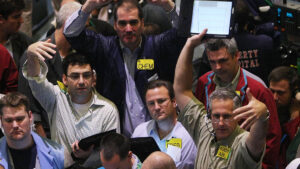Reflections on a 30-year career in Australian tech with Giant Leap venture partner Peter Cameron

Getty Images
By global standards, Australia’s tech and startup scene still lacks the maturity of more developed markets overseas.
But Peter Cameron says things have still changed pretty rapidly since he began life as an angel investor at the start of the decade.
Wind it back further to 1999, when Cameron was establishing the Australian distribution network for global tech company AVG Technologies, and the startup support network was practically non-existent.
On the hunt for office space in Melbourne, Cameron noticed a commercial building with a sign that said it would be vacant for the next six months. So he contacted the owners and asked if he could use it instead.
“It was a bit bold and a bit brash, but they said yes”, Cameron says, speculating that he may have inadvertently created Australia’s first co-working space.
“Now there’s so much more infrastructure available, there’s a lot more investors. You’ve still got to have a great business, but there’s been so much progress made in the number of investors that are out there.”
Making an impact
Having built up a successful local arm of AVG, Cameron cashed out when the New York-listed parent vertically integrated the Australian operations.
That left him with a healthy pool of funds to invest in local startups at the start of this decade.
Not long after, he met the team at Giant Leap, which was in the process of setting up its first venture capital fund.
Cameron came on board as a venture partner at Giant Leap, having found that its investment mandate — to help build companies that can improve society — was in line with his own investment views.
“We’re making sure we’re looking for commercial business, but businesses that make a positive impact,” he said.
The fund has 10 companies in its portfolio including Sendle, Glam Corner and Future Super.
“And that ties into my philosophy from when I first started investing. I was lucky enough to have some money to invest, but I want to make sure it can have an impact too.”
Even since 2011/12, when Cameron first began investing in startups, he’s seen plenty of changes take place.
“The difference from the startup community now to even five years ago is staggering,” he says.
“When I got involved, it was a decision to invest more as a way to give back but the scene was undeveloped. Now there’s proactive government policy, you’ve got startup ecosystems and co-working spaces.”
Sing when you’re winning
Despite those improvements, Cameron says one area where the local startup scene falls short is shining a light on companies that are doing good things.
“I suspect there are so many businesses like that out there doing good things that aren’t getting market attention,” he says.
“We hear about Atlassian or Xero, but you don’t hear a lot about Aussie startup successes, and that’s something that I think we do really badly.”
“By doing that I think the market will explode, but I think people here don’t really put their hand up and say ‘I’ve done really well here’, and I think that affects the whole ecosystem.”
While that may be a weakness of the local startup culture, Cameron says there are plenty of strengths as well.
“One thing Aussie’s are great at is they’re great innovators. And I believe they’re adaptable — Aussie founders are really adaptable which is different perhaps to America.
“Founders there may have more of a fixed way of doing things, or they don’t have to change because they benefit from such a huge market.
“Australians have to be prepared to change their go-to market strategy and I think that gives them some unique advantages.”
That’s important because for one thing, business opportunities such as AVG — establishing the local arm of a global company — are few and far between these days.
“Times have changed — you probably couldn’t do what I did now, because the whole distribution channel has changed over the last 15 years,” Cameron noted.
“Technology has allowed international companies to carry out their own expansion strategies.”
UNLOCK INSIGHTS
Discover the untold stories of emerging ASX stocks.
Daily news and expert analysis, it's free to subscribe.
By proceeding, you confirm you understand that we handle personal information in accordance with our Privacy Policy.








